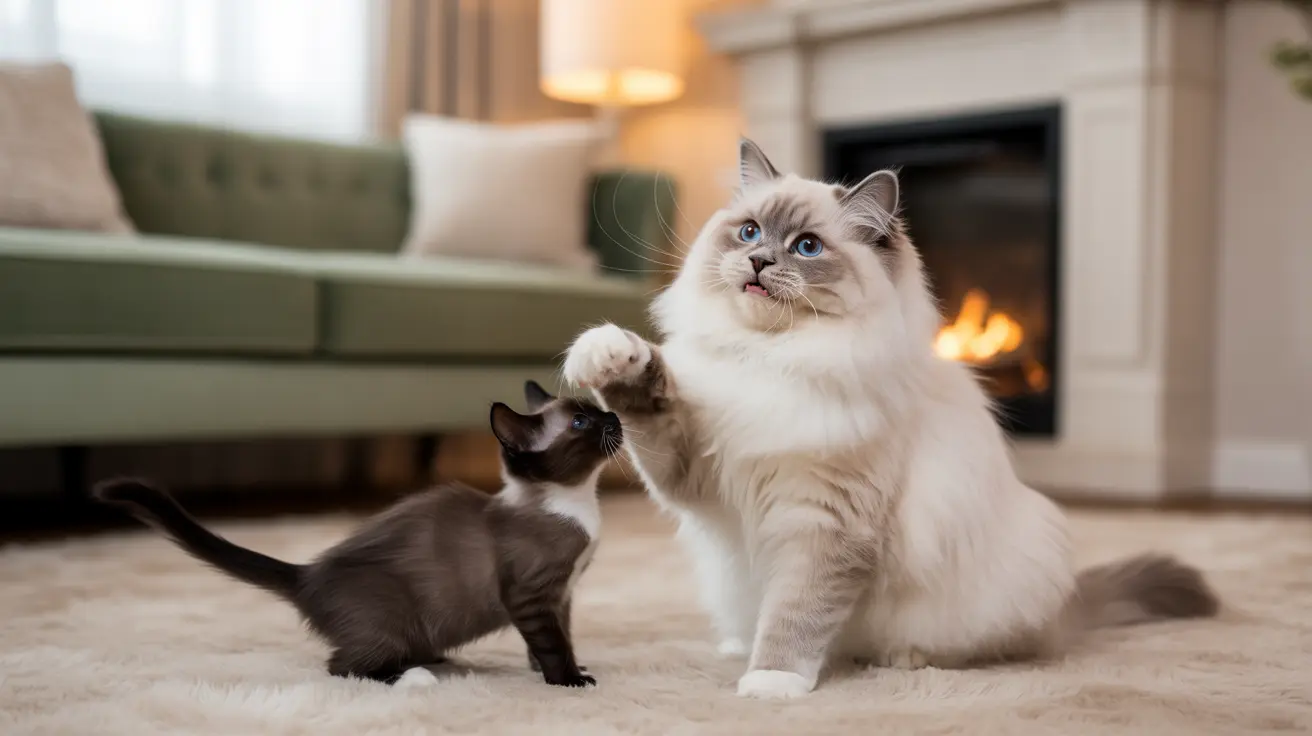Understanding Cat Social Behavior
Despite descending from solitary wild ancestors, domestic cats have evolved to develop varying degrees of social capacity. While some cats maintain strong independent streaks, others form deep bonds with both humans and fellow felines.
Modern research shows that cats' social preferences are shaped by several key factors:
- Early socialization experiences
- Genetic predisposition and breed characteristics
- Individual personality traits
- Environmental conditions and resources
Signs Your Cat Might Want a Companion
Cats can display various behaviors that suggest they might benefit from feline companionship:
- Excessive vocalization, especially when alone
- Following humans constantly around the house
- Destructive behavior or excessive scratching
- Overgrooming or changes in grooming habits
- Apparent depression or lethargy
- Increased neediness or attention-seeking
Benefits of Multiple Cat Households
When cats are well-matched, having a feline companion can provide numerous advantages:
- Mutual grooming and social bonding
- Increased physical activity through play
- Reduced separation anxiety when owners are away
- Mental stimulation and entertainment
- Shared warmth and comfort
Potential Challenges of Adding Another Cat
Before introducing a new cat, consider these potential complications:
- Territory disputes and resource competition
- Stress-related behavioral issues
- Increased household expenses
- More complex veterinary care management
- Possible personality conflicts
Making the Right Choice for Your Cat
Consider these factors when deciding if your cat needs a companion:
- Your cat's age and energy level
- Previous experiences with other cats
- Available space and resources
- Your ability to manage multiple cats
- Breed-specific social tendencies
Creating a Happy Environment for Solo Cats
If your cat is better suited to being an only pet, ensure their happiness through:
- Regular interactive play sessions
- Enriching environment with climbing spaces and hiding spots
- Puzzle feeders and engaging toys
- Window perches for outdoor viewing
- Consistent daily attention and affection
Frequently Asked Questions
Do cats naturally prefer to live alone or with another cat?
Cats' social preferences vary significantly based on their personality, early experiences, and breed characteristics. While some cats naturally prefer solitude, others thrive with feline companions, especially if they were socialized with other cats during kittenhood.
How can I tell if my cat is lonely and needs a feline companion?
Signs of loneliness can include excessive vocalization, increased neediness, destructive behavior, changes in eating or sleeping patterns, and apparent depression. However, these symptoms could also indicate other issues, so consult with a veterinarian for proper assessment.
What are the benefits and challenges of introducing a second cat at home?
Benefits include companionship, increased activity through play, and reduced separation anxiety. Challenges might involve territorial disputes, resource competition, and potential personality conflicts. Success depends largely on proper introduction techniques and compatible personalities.
Which cat breeds or personalities are more likely to enjoy having another cat?
Social breeds like Siamese, Ragdoll, and Burmese typically enjoy feline companionship. Young, energetic cats and those raised with siblings often adapt well to other cats. However, individual personality matters more than breed.
How can I help a single cat stay happy and mentally stimulated without a cat friend?
Provide environmental enrichment through interactive toys, climbing structures, and window perches. Maintain regular play sessions, offer puzzle feeders, and ensure consistent daily interaction. Create a stimulating environment with various activities and comfortable spaces.
Conclusion
Whether cats prefer to be alone or with another cat depends on various individual factors. While some cats thrive in solitude, others benefit greatly from feline companionship. The key is understanding your cat's unique personality and needs before making this important decision.
Remember that either choice can lead to a happy, healthy cat as long as you provide appropriate care, attention, and environmental enrichment. If you're considering adding another cat, take time to evaluate your current cat's temperament and consult with veterinary professionals for personalized advice.






